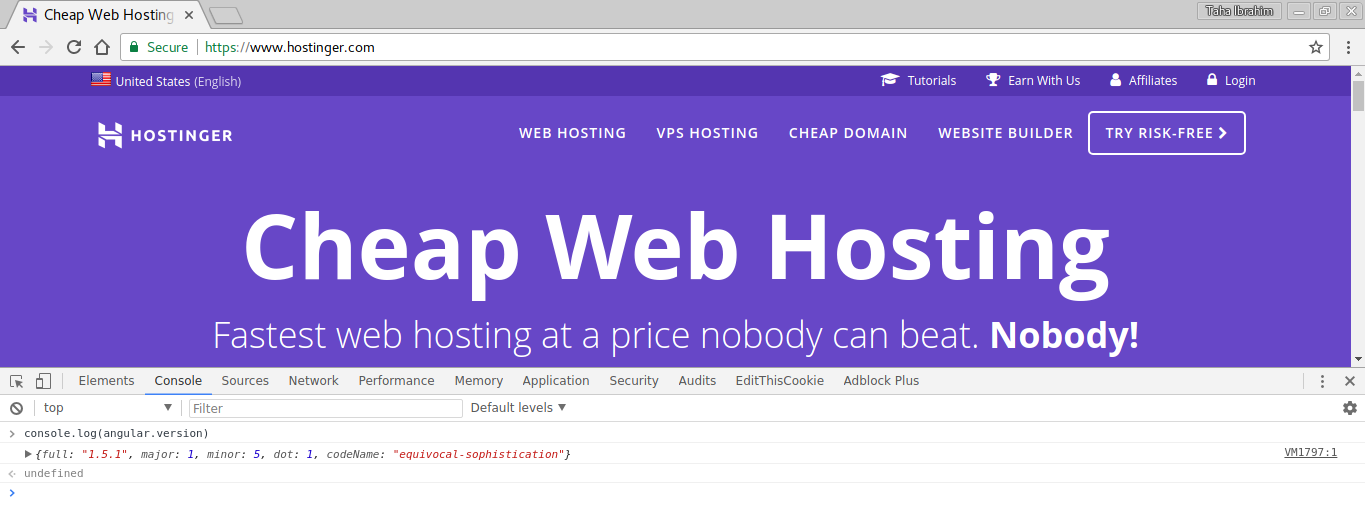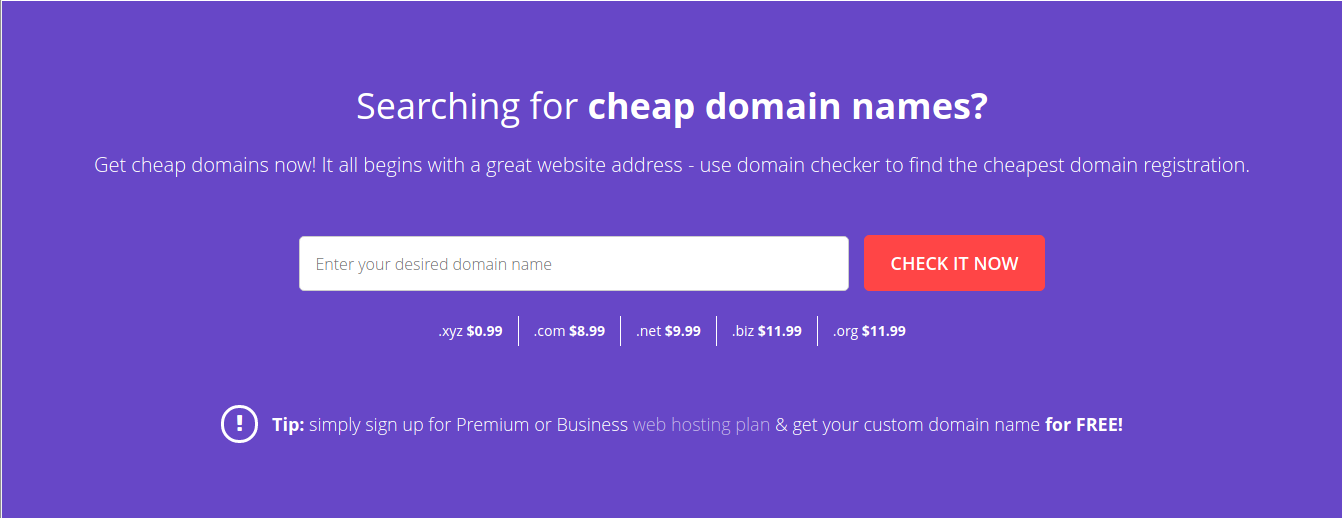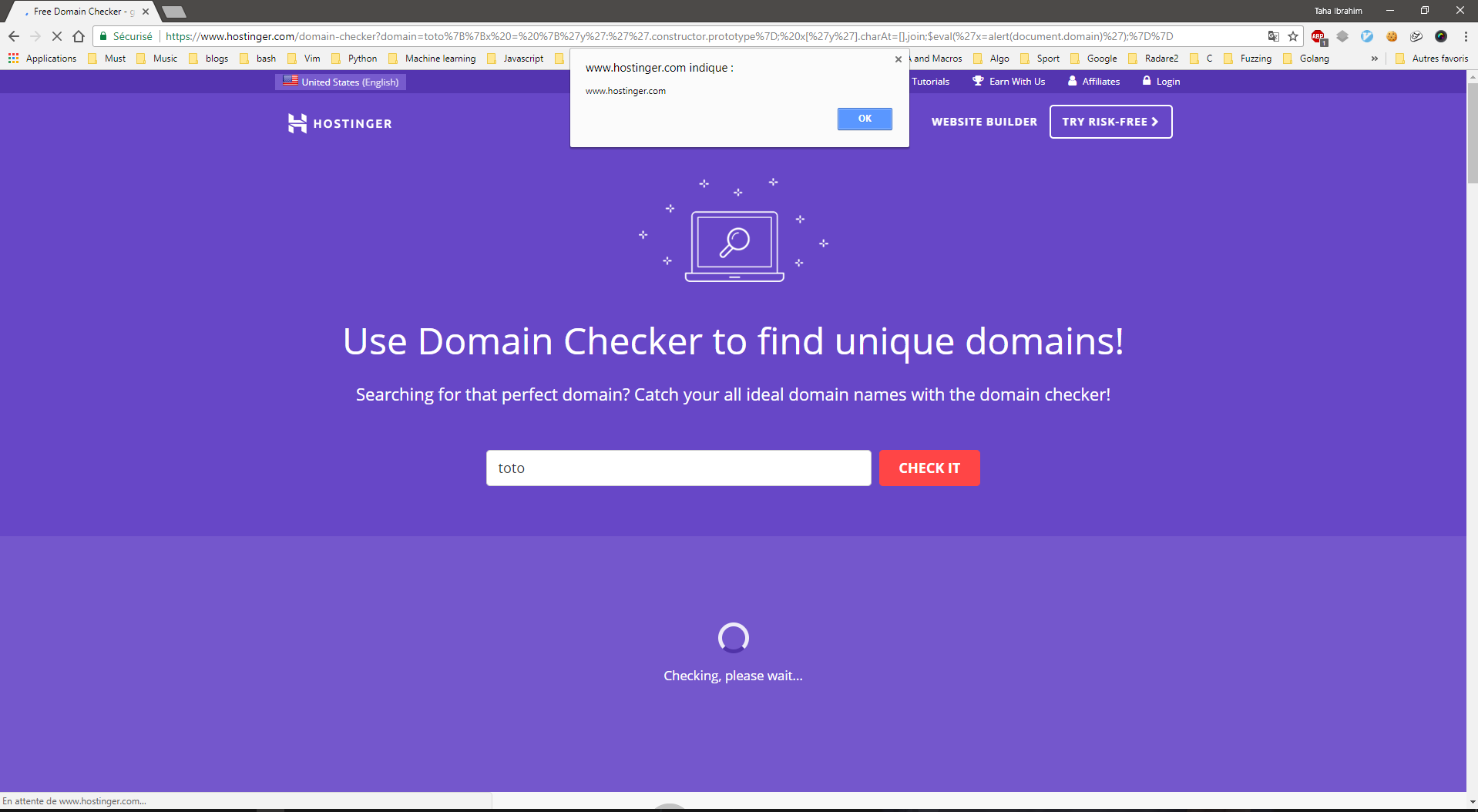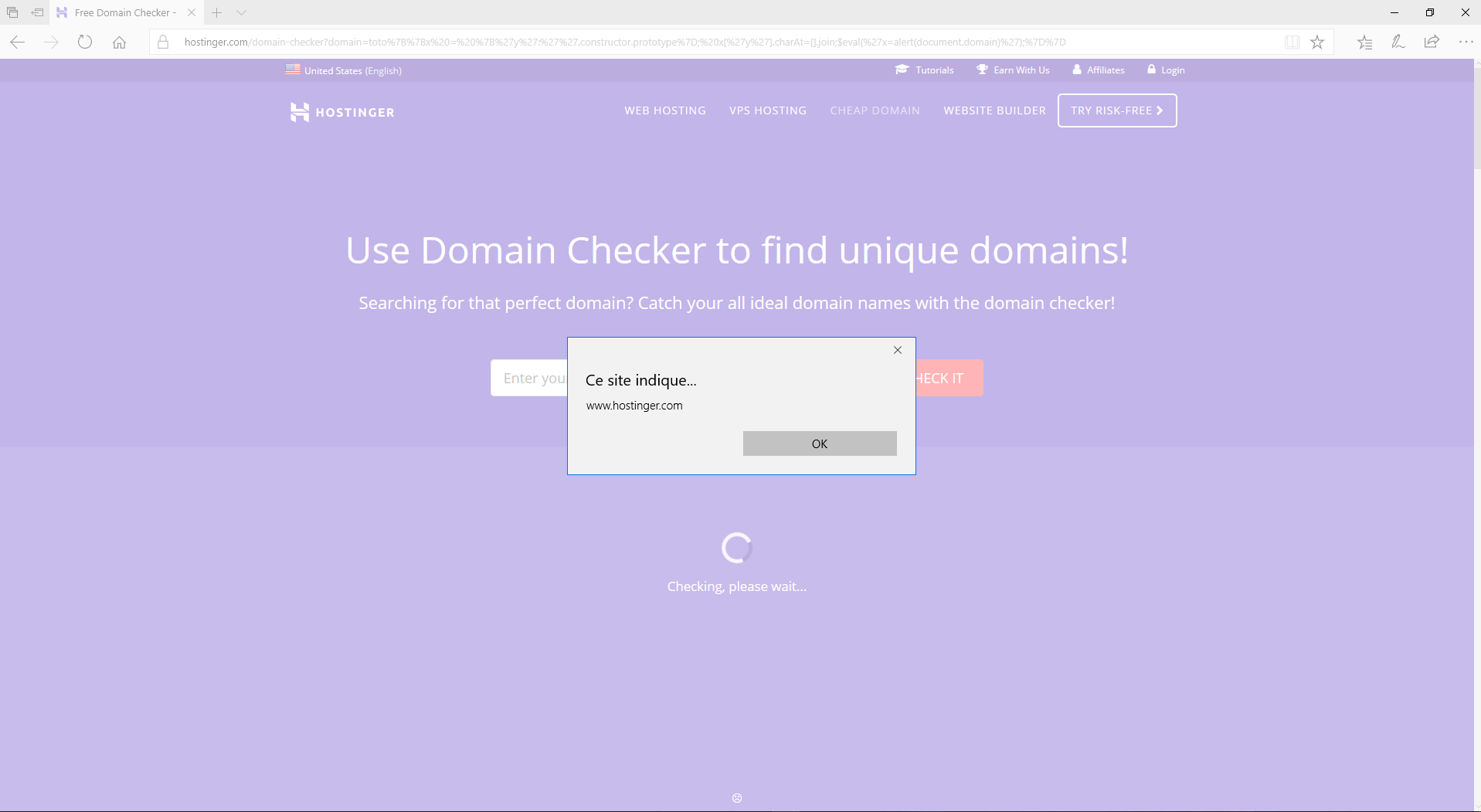Reflective XSS via angularJS template injection - Hostinger
Introduction
This is a write-up of an AngularJS Template Injection I found in the main domain of Hostinger. If you don’t know what’s client-side template injection I invite you to take a look at those links [1][2]. Please note that this is my first write-up, I hope you’ll enjoy it.
It all started when @berkanexo was telling me that he got listed on Hostinger Wall Of Fame so I decided to take a look at their website.
What is Hostinger?
A world class web hosting platform. Who has a bug bounty program.
Finding the vulnerability
While browsing their website the first thing I noticed is that they were using AngularJS for the front, I immediately opened the Javascript console to check what version they were using.
 {:class=“postImage”}
{:class=“postImage”}
As we can see on the above image, they were using the version 1.5.1. I knew the existance of a payload for that version. The only thing left todo was to check if they were vulenrable to template injection. On the main page of the website was a form to find a unique domain.
 {:class=“postImage”}
{:class=“postImage”}
I inserted the following: toto{ { 4-2 } } and the result was: toto2 which mean they were vulnerable to template injection. It was not enough. I needed to proof that we can run javascript code.
Exploitation
By inserting the following:
{% highlight javascript lineos %}
toto{ {x = {‘y’:’’.constructor.prototype}; x[‘y’].charAt=[].join;$eval(‘x=alert(document.domain)’);} }
{% endhighlight %}
An alertbox should popup and should be accepted as a Proof Of Concept.
Proof of Concept using Chrome:
 {:class=“postImage”}
{:class=“postImage”}
Proof of Concept using Edge:
 {:class=“postImage”}
{:class=“postImage”}
Timeline
- 23/10/2017: Reported to Hostinger
- 24/10/2017: Vulnerability Patched
- 25/10/2017: Got my name on their Wall Of Fame
Thanks for reading.